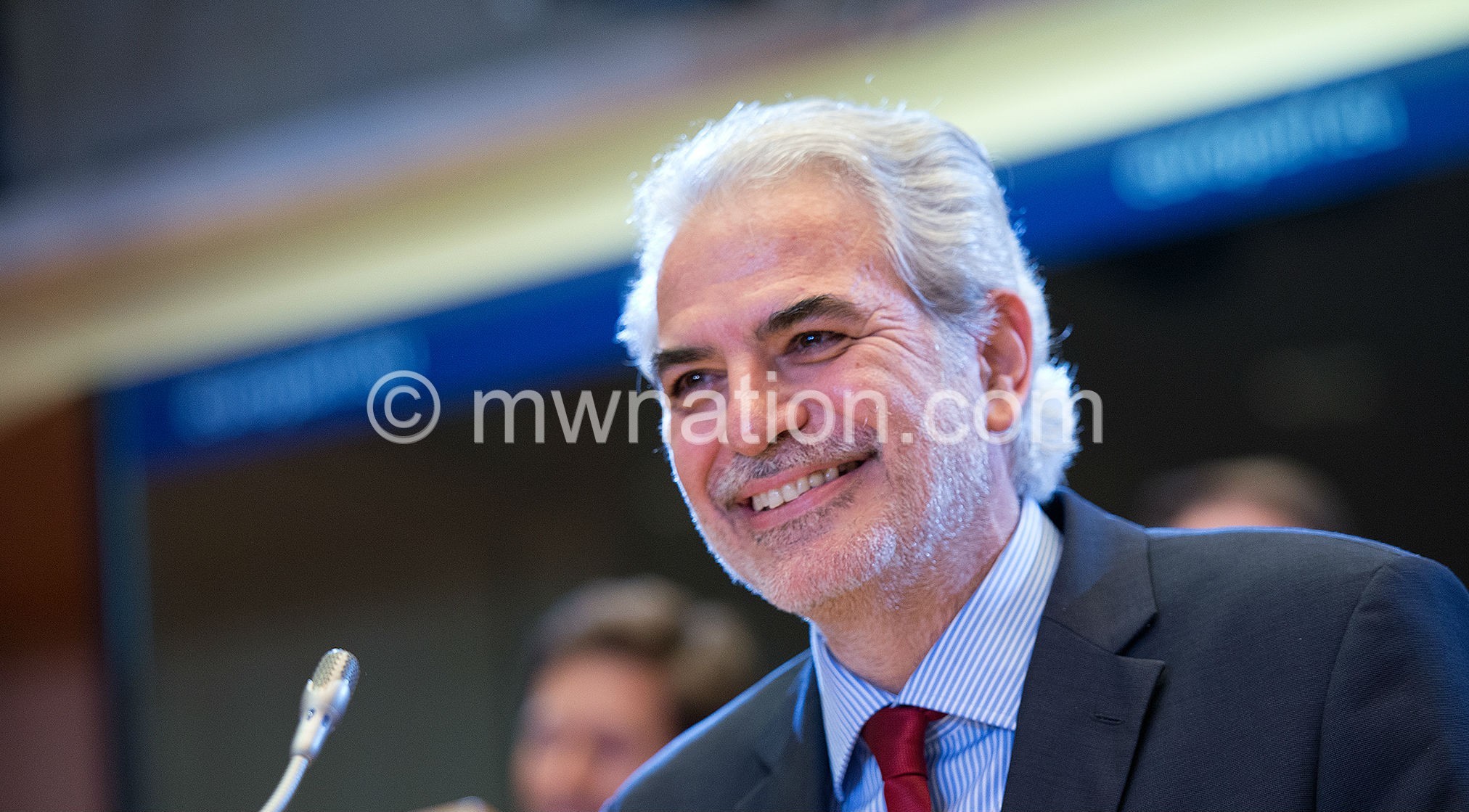‘Donors should not forget Malawi’
European Union (EU)Commissioner for humanitarian aid and crisis management Christos Stylianides was in the country on an official visit to Malawi to assess the effectiveness of EU humanitarian aid. ALBERT SHARRA caught up with him. Excerpts:
You visited some of the people most affected by hunger this year. What are your impressions

My coming here is to express the EU solidarity and our support for the people of Malawi, especially here in Chikwawa, which is one of the most affected regions by the El-Nino phenomenon. Malawi and the whole region [Southern Region] are among the worst affected by the ongoing El-Nino. While on the ground in Chikwawa, I saw the resilience of people who were struggling to find food for their children because of natural forces beyond their control, but they are moving forward.
What I saw was hope. I saw that these people insist to be resilient and self-reliant of course, with our assistance. I also witnessed the fantastic work of our partners on the ground. All international organisations, UN agencies and, of course, non-governmental organisations (NGOs). The EU, through my presence here, is here to help these people. The EU commission has been one of the first donors to react to President Peter Mutharika’s appeal for assistance. We immediately started to take measures and implement projects which bring immediate help to families and contribute to the long-term resilience of Malawi.
What are these steps and what is the impact so far?
EU has allocated over 16 million euros in emergency assistance in humanitarian food alone and, of course, disaster risk reduction projects to help the country’s most vulnerable. This is part of the wide 52 million euros package for the whole southern Africa because we are also involved in Zimbabwe and Mozambique and other countries. In addition, the EU will be providing 170 million euros to Malawi of development aid for resilience and rural development actions of relevance to the El-Nino response. This is part of our global response to the El-Nino crisis in the most affected regions of the world. We are committed to helping with this emergency support for as long as it takes. Our response will continue in the course of next year.
Do you think government of the Malawi is doing enough to support these people?
El-Nino is a recurring phenomenon and so our common approach should come beyond immediate relief. This is why we are working hand in hand with our development colleagues on this. I would like to underline that the government of Malawi has also taken important steps to avert the crisis. I met the President, Vice-President Saulos Chilima and other ministers and our discussion proved that the government of Malawi is committed to continuimng to work hand in hand with us in order to improve the everyday life of the Malawian people.
What more do you think Malawi should do to ensure people have food throughout the lean period?
Of course, as a commissioner, I encourage the government to continue the positive collaboration with all the humanitarian actors, including the international non-governmental organisations [NGOs], Red Cross and, of course United Nations [UN] agencies. It is also crucial that global donors do not forget the suffering of the people of Malawi. My mission is focused on this, to raise awareness for the international community donors. We need to increase our assistance to Malawi in order to meet the needs. This is a big challenge for all of us as international humanitarian community.
Only, with a long-term vision and only together we can address the root causes of fragility and vulnerability of these regions especially in Malawi. This is the only way to build resilience of vulnerable populations.
What are some of the issues which you have observed during the visit which you think should be addressed?
When I met President Mutharika and his ministers, we discussed several issues including family planning. I am sure government already received this issue as a first step in trying to find ways to overcome all these difficulties and to provide assistance to the people.
Do you think Africa especially the affected region is doing enough to address this problem once and for all?
There are several steps being taken, from me three ways are enough to win the battle. Preparedness, disaster risk reduction and risk management. These are the core steps to prevent any phenomenon as El Nino and from my professional experience, because I am coming from a medical background, I have to say that prevention is better than cure.





